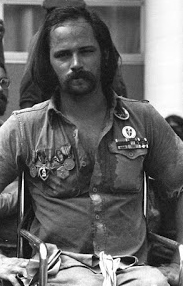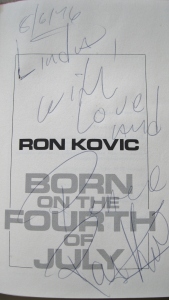When my parents were in their 70s, they downsized and decided on a sensible condominium. That meant leaving the house on Hamilton Avenue, in Massapequa, where I had grown up. They began getting rid of stuff, and my mother made it clear that I should make room in my car on my next visit to take some things back to Baltimore.
When I got to their house, five boxes with my name on them were stacked by the front door, my mother’s subtle way of saying, “Please get this crap out of here.”
Two contained books I didn’t read in college. Two more held clothes that might come in handy for a Halloween costume somewhere down the line, if I could ever fit into them, which would never happen. The last was a shoebox labeled, Linda’s Letters from College.
The box with the letters was unexpected. I didn’t know my mother had kept them, and knowing what they said, I wished she hadn’t. I considered just throwing the box away, unopened, knowing how embarrassed I’d be if I read them. Then I thought, “She saved them for 30 years.” So when I was back in Baltimore and alone, I opened each letter as if a hairy spider might jump out at me. They were every bit as bad as I remembered.
I can see I wrote every week of freshman year. I don’t know what got me the most — that I come from an era where people actually wrote letters, or that these innocent little envelopes contained such didactic drivel. Apparently, I had figured out everything by second semester away at a state college, and I felt the need to share.
I want to say it’s the letters from sophomore year in 1970 make me wince, but it’s worse than that. I’m ashamed of them. I was taking Sociology 101 that spring, which made me an expert on Vietnam, racial tension, and poverty. I had an epiphany in that class about my upbringing and, in those letters, hit my parents over the head with it, with lengthy paragraphs outlining their many mistakes.
They had given me a middle class childhood that I would now have to crawl out of because — really — there were few conditions worse than being middle class. Even I (who was practically a sociologist at that point) couldn’t think of anything worse. I lectured them on how they had bought into “the system.” They were materialistic. They didn’t understand oppression in America. If I had to label the tone I adopted, “How dare you!” would probably do it.
In 1950, ever the planners, my parents moved into our home a few months before I was born. Our neighborhood was just-planted maple trees, loose gravel on the road, and no sidewalks.
Most of the streets within a mile radius were named for American states and cities. But by the time they got to my street, Canada was suddenly involved with the street names Toronto, Ontario, and my street, Hamilton. I walked nine blocks to school, passing streets with names like New Hampshire, Boston, Pittsburgh, and Massachusetts, which gave me time to think about how the street-naming process should have been more organized. I wanted a street name that was American. I didn’t think it was too much to ask, considering the times and my patriotic heart. I took some solace in the fact that I didn’t live on the next street over from mine — Jerusalem — because I had no idea where Jerusalem was.
My parents wanted a house with a basement, not one built on a concrete slab, so Levittown was out. Ours was a two-bedroom Cape Cod with one bathroom. These houses also came with a garage, an unfinished basement, and an attic that, sooner or later, almost everyone would expand with a dormer for more bedrooms. Even when our parents looked at the tiny boxes these homes were, they were imagining the future.
The basement space came in handy for the rec room. I used to see ads in the Saturday Evening Post of families gathered around their ping pong tables, with trays of food behind them on a built-in bar. The lighting was always soft, and those rec rooms had carpeting. Some even had a fireplace and a piano with a dozen or so people arm in arm, belting out a tune.
Our rec room had trouble keeping up. It was at the bottom of our wooden stairs with those brown rubber pads on them so you wouldn’t trip. It had one tiny casement window, knotty-pine paneling that went halfway up the wall, and a linoleum floor in a pattern that looked like an accident of some kind. In the summer I’d make believe it was air-conditioned when we watched TV down there. In the winter you needed a blanket over you. My parents talked about mildew a lot. But at least our house didn’t sit on a slab.
My father signed up for the GI Bill and began college classes at night after his workday at Grumman was over. For twelve years, he commuted to Hofstra two evenings a week. The other three nights my mother worked the evening shift as a nurse at Brunswick Hospital, in neighboring Amityville. Those nights my father studied while taking care of me, and later, my two brothers. On the weekends they cleaned house, food shopped, and cleared the decks for the week ahead.
In the summers we took a vacation, but my father, a history buff and reader, was always partial to places like Gettysburg or Fort Ticonderoga, so even then I wasn’t having as much fun as other kids. Holidays involved the same cast of characters my whole life — aunts, uncles, cousins, and neighbors. Food, fun, and lots of noise. Imagine my angst.
That was the life I was up against when I took stock in 1970. Years and years later, I got over the embarrassing situation my parents had put me in, and began carving out — imagine this — a middle class life for my own kids. The only differences were that I worked half as hard and talked about it twice as much as Jean and Ed DeMers did.
When do you get far enough away from your childhood to really see it for what it was? Maybe when you get your first job and that alarm clock isn’t your friend, and it dawns on you that your dad did this every single morning while you were asleep in your cozy bed.
Maybe the moment you see your first baby. And that overwhelming love takes you by surprise. And only then do you understand how your parents felt the day they met you.
I think my mother knew exactly what she was doing when she handed me that box of letters. It was as if she was saying, “Someday you’ll see.”
And I kept them all. And I do.


